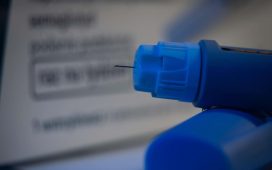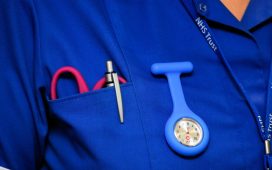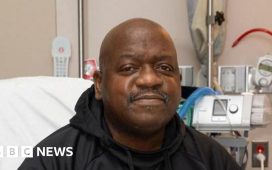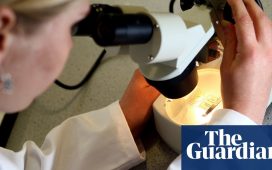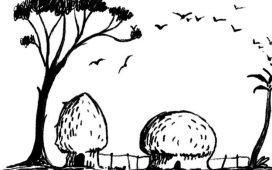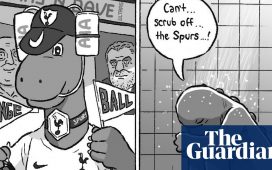Ant McPartlin, 43, met Declan Donnelly on Biker Grove, a young-adult drama that first aired on television in 1989. The meeting proved fortuitous, with the pair becoming a hugely successful entertainment outfit, scooping up an impressive collection of awards for their presenting skills and shows ever since. In the past few years, life has been rocky for Ant, however, which began when the star became addicted to prescription drugs, along with alcohol, following a knee operation back in 2015.
Things seemed to go from bad to worse for the TV star, culminating in a road traffic collision in 2018, which resulted in his arrest and later charge for drink-driving.
During his recovery process, the star found that he had been living with attention deficit hyperactivity disorder (ADHD), a behavioural disorder that includes symptoms such as inattentiveness, hyperactivity and impulsiveness.
Speaking to The Sun, he said: “I never knew that until afterwards.
“I was so thoroughly examined and diagnosed, I found stuff out about me I hadn’t addressed for years.
“There are a lot of links to alcohol-dependency, which I studied a lot when I was away.”
READ MORE: Claire King health: Emmerdale star’s diagnosis ‘I was shocked and devastated’
Many adults with ADHD aren’t aware they have it — they just know that everyday tasks can be a challenge.
Adults with ADHD may find it difficult to focus and prioritise, leading to missed deadlines and forgotten meetings or social plans, notes Mayo Clinic.
“The inability to control impulses can range from impatience waiting in line or driving in traffic to mood swings and outbursts of anger,” it said.
Adult ADHD symptoms may include:
- Impulsiveness
- Disorganisation and problems prioritising
- Poor time management skills
- Problems focusing on a task
- Trouble multitasking
- Excessive activity or restlessness
- Poor planning
- Low frustration tolerance
- Frequent mood swings
- Problems following through and completing tasks
- Hot temper
- Trouble coping with stress
How to treat it
As the NHS explained, there is currently no cure for the condition but it can be managed with appropriate educational support, advice and support for parents and affected children, alongside medication, if necessary.
“Medicine is often the first treatment offered to adults with ADHD, although psychological therapies such as cognitive behavioural therapy (CBT) may also help,” said the health body.
There are five types of medication licensed for the treatment of ADHD:
- Methylphenidate
- Dexamfetamine
- Lisdexamfetamine
- Atomoxetine
- Guanfacine
These medications are not a permanent cure for ADHD but may help someone with the condition concentrate better, be less impulsive, feel calmer, and learn and practise new skills.
ADHD is sometimes best managed with a holistic approach, explains the health body, and in addition to taking medication, different therapies can be useful in treating ADHD in children, teenagers and adults.
Therapy is also effective in treating associated problems, such as conduct or anxiety disorders, that may appear with ADHD, the health site says.
Pyschoeducation is one approach, as the NHS explained: “Psychoeducation means you or your child will be encouraged to discuss ADHD and its effects.
“It can help children, teenagers and adults make sense of being diagnosed with ADHD, and can help you to cope and live with the condition.”


